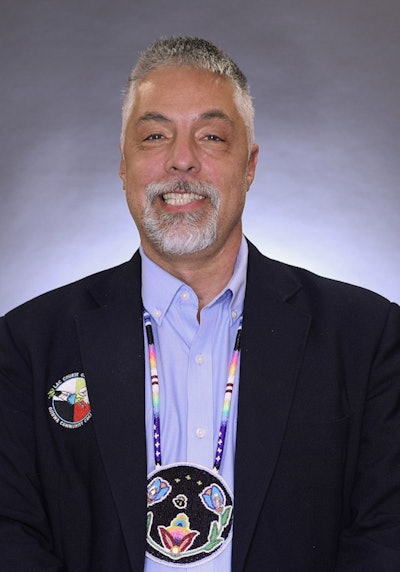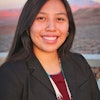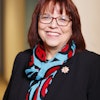 Dr. Russell Swagger, president of Lac Courte Oreilles Ojibwe College
Dr. Russell Swagger, president of Lac Courte Oreilles Ojibwe College
“It’s just astounding here,” said Dr. Russell Swagger, president of LCOOC. “It seems like every time somebody talks to me, I hear about a family member who passed away or committed suicide or overdosed. It happens all the time to the point where people don’t get a breather from it. And then the next thing comes. Then the next thing.”
To give more people that breather and professional help, LCOOC, which enrolls about 500 students and is in the Ojibwe nation, launched a teletherapy program to connect its students, staff, and faculty to licensed counselors whenever they need them.
LCOOC mostly serves Indigenous students as one of two tribal colleges in Wisconsin. Swaggers said tribal citizens qualify for healthcare services at a nearby wellness center. But the center has been stretched thin in the pandemic with heightened need. In addition, about 20% of LCOOC students are not tribal citizens who could qualify for the center’s support.
“For those students, having access to teletherapy whenever they need it will make a huge difference,” said Swagger. “We have students dealing with suicides, losses in the family, and everyday issues of not being able to make ends meet. A tool like this is a better solution for all of us without tapping the center’s resources for students. So that people won’t have to suffer alone.”
The program partners with Uwill, a company that focuses on teletherapy for college students in various formats (i.e. chat, video). All LCOOC students will get on-demand, 24-7 access to Uwill’s network of licensed counselors.
“This partnership reflects the growing importance of technology as a tool to streamline the process of providing student mental health support,” said Michael London, founder and CEO of Uwill, in a statement. “Our work with LCOOC will help more students manage the complexities of the school year and succeed in their journey to earn a degree, while also providing a much-needed resource for faculty during a uniquely challenging time.”
LCOOC students like Tim Barber, who is president of the student senate, added that the program can help destigmatize mental health issues. Barber has suffered from Post-Traumatic Stress Disorder and said the program is an encouraging step.
“I feel like LCOOC is being very considerate towards students like me, and that makes me proud to be here,” said Barber. “COVID brought a lot of light to people’s lives that anxiety and depression can affect anyone. I think it takes real bravery to say that I’m not doing okay, that I need someone to help me do better.”
At LCOOC, reliable internet access, however, remains a problem for many. Students have parked in the school parking lot to access wifi that they cannot get or afford at home. Swagger said LCOOC is determined to help students use internet connectivity on campus to access Uwill if they cannot do so from home.
“We have legislators working on a bill that would help bring connectivity to rural parts of Wisconsin, which is basically all of our tribal communities and where our students live,” said Swagger. “That will be the biggest challenge for us. If we can get that done, then we can work on the affordability piece. We have a lot of people stepping up from private organizations to make sure we can provide those services.”
LCOOC pays for the Uwill partnership, but Swagger said that “if we can prevent suicide or domestic violence, then for us, the cost is worth it.”
He added that LCOOC didn’t suffer student enrollment losses during the pandemic, unlike many tribal colleges across the country. The community has remained small and close knit.
“If you’re not a part of this community, you may think we’re like everyone else, and we’re really not,” said Swagger. “We’re a lot smaller, denser, and a lot more removed from the services that are near cities. The impact of COVID has really at times been crippling to us. This Uwill platform will be one more resource to make sure people can stay in school, graduate, and go to work to provide for their families.”
Rebecca Kelliher can be reached at [email protected].
















